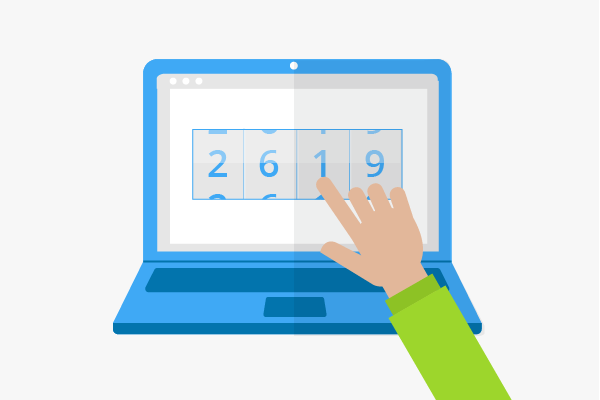Unique Visitors
Unique Visitors are the individually-counted users of a website. This KPI in online marketing and media planning shows how many people have visited a website during a certain period of time. Unique visitors shouldn't be confused with Visits and Page Impressions.
Determining the unique visitors of a website
Cookies are utilized to determine the number of unique visitors to a website. When users visit a website from their Browser, a cookie is stored on their computer. This contains data, which can be used to uniquely identify the respective browser. If a user visits a website repeatedly, this is automatically registered by the cookie. Although he visits the site several times, he is only considered as one unique visitor. At the same time, he will of course create several visits and even more Page Impressions.
Differentiation from other terms
The terms “Unique Visitors,” “Visits” and “Page Impressions” are frequently confused. They are directly related to each other, however, they each refer to completely different parameters:
- Unique Visitors: Number of people who visit a website (multiple visits of one person are not counted here)
- Visits: Number of visits to a website (including multiple visits of a person)
- Page Impressions: number of pages viewed on a website (each page viewed, including double page views)
The following example will illustrate this. Let’s assume a website gets the following visits in one day:
Visitors 1 visits the website at 10:00 a.m., 1:00 p.m. and 5:00 p.m. and views two subpages. Visitor 2 visits the website at around 7 p.m. and views 13 subpages. Visitor 3 visits the website at around 8.00 a.m. and 11.00 a.m. and views three subpages one time and seven the other.
The evaluation result would be this:
- 3 unique visitors (visitors 1, 2, and 3)
- 6 visits (8:00 a.m., 10:00 a.m., 11:00 a.m., 1:00 p.m., 5:00 p.m. and 7:00 p.m.)
- 35 page impressions (2 x 6 + 13 + 3 + 7 = 35 pages viewed)
Inaccuracies/measurement errors
When determining the unique visitors by means of cookies, there are inaccuracies, which ultimately result in inaccurate measurements. Such inaccuracies may be occasioned by the following circumstances:
- Two people use the same computer and the same browser (= actually two unique visitors, but only one is counted)
- A browser does not accept cookies, or the cookies are deleted as soon as the browser is closed (= the user is counted again as a unique visitor on each visit, since no cookie is found)
- A user uses several computers, terminals and/or browsers (= actually only one unique visitor, but each computer and browser is counted separately as a unique visitor)
- The definition of a unique visitor in the tracking tool is not sufficient (= in the tool, it is for example fix that a visitor is counted as a unique visitor if he looks at a website twice in one day.)
This problem can only be circumvented by having user accounts with each user uniquely identifying themselves. However, since this is not always feasible in practice, a certain measurement inaccuracy is acceptable.
Relevance to search engine optimization
Unique visitors are an important indicator of the success of a website with regard to search engine optimization. Using this statistic, the traffic to a website can be better segmented. New and returning visitors can be differentiated from one another. How to evaluate unique visitors with Google Analytics is shown in this YouTube Video.

